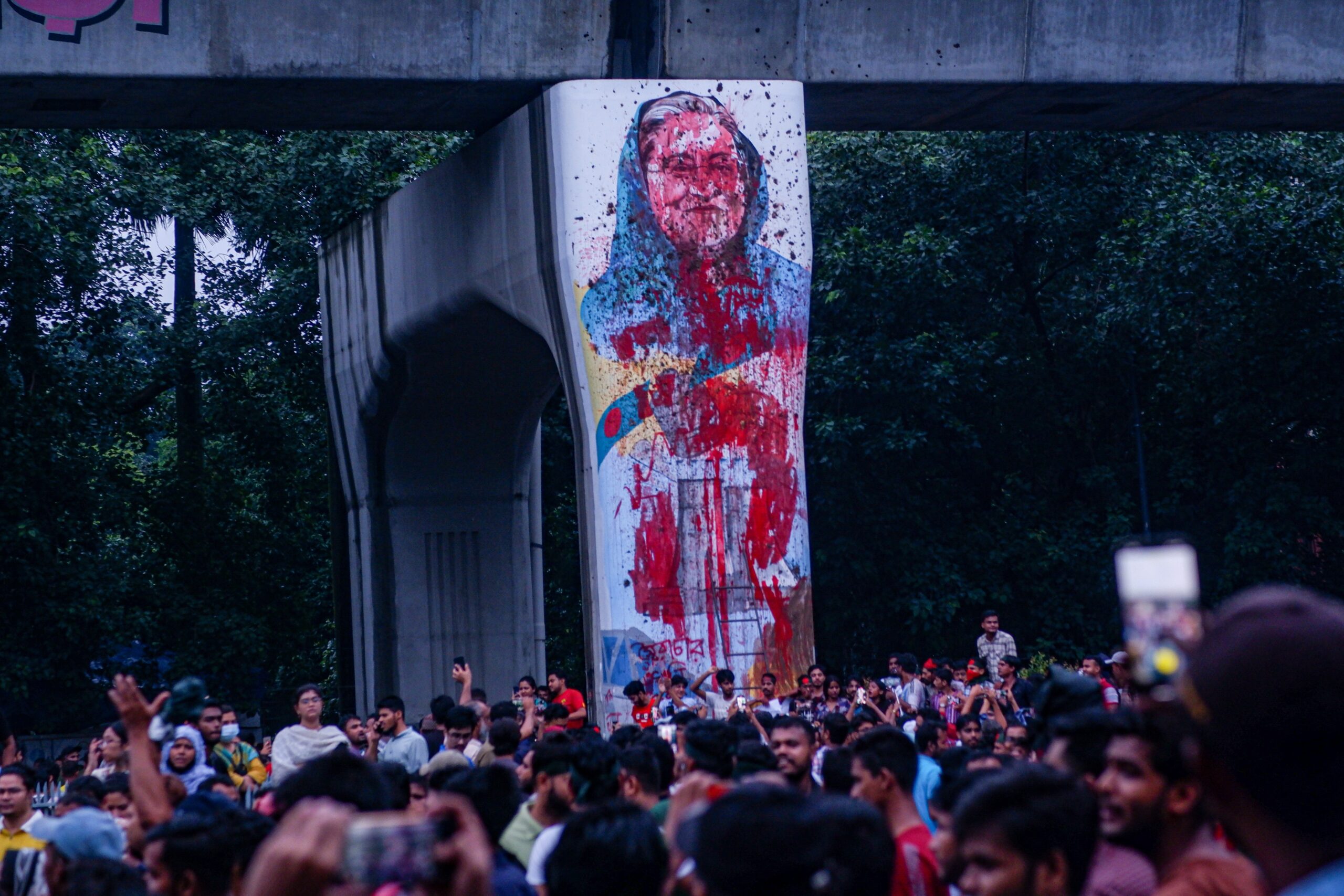
Judging the Awami League’s (AL) status is a provocative question in the political stage of Bangladesh today. This is a natural outcome of circumstances. There is hardly anyone in the country who would disagree with the fact that the Hasina government fell because of a popular uprising in response to its fascist rule. This has led the Chief Adviser of the interim government, Muhammad Yunus, to accuse the AL, the political party of ousted Prime Minister Sheikh Hasina, of exhibiting “all the characteristics of fascism.” He asserted that it has “no place” in the country’s politics for now. However, the question now is how to treat AL. Should the party be officially banned? While the leading political party, Bangladesh Nationalist Party (BNP), has expressed opposition to banning AL, another opposition party, the Jamaat-e-Islami (JI) chief, declared that the AL has no right to return to Bangladeshi politics. So, how does one treat AL under the circumstances?
What lessons can we derive from our knowledge of history? How have other countries dealt with fascist political entities? We know that post-war Germany banned Hitler’s Nazi party. So did Italy with its Nationalist Fascist Party. These countries also prevented any possible return to authoritarianism through legal means, judicial action, and educational reforms. The dilemma for Bangladesh is that following the July/ August student revolution, some leading members of the interim government held the view that the country needed a constitution to function, and they retained the same Constitution that had earlier enabled the AL government to establish its fascist rule. They hardly realized that the Constitution itself was illegitimate. The revolution has already challenged its legitimacy. One may raise the question of whether constitutions are mandatory for a country to function. The answer is no. There are countries in the world today that do not have formal constitutions; they function based on some consensus among citizens. The French philosopher Jean-Jacque Rousseau identified a consensus as the General Will. Do Bangladeshis currently have a General Will? Yes, they do. The students began their movement with some specific demands motivated by their quest for justice, but when they realized that the government would not pay any attention to their demands, they moved to one single demand – the removal of the government. The whole nation stood behind the students, and their revolutionary move succeeded. This was no less of an achievement than the French Revolution. Incidentally, the French Revolution also occurred in July/ August 1789. Who says that there is no General Will in Bangladesh? All the initial demands of the students may function as the framework for a fresh constitution for Bangladesh. One must note that the General Will is not the will of all, neither is it the will of the majority; it is the will of the overwhelming majority of the people and serves the basic interests of all.
A couple of weeks ago, the visiting UN human rights chief recommended broadening the scope of justice to include victims of all killings and human rights abuses. Is he referring to members of AL, some of whom did become victims of violence during the July/ August revolutionary days? Is the BNP trying to accommodate AL thugs in the name of inclusiveness? The UN Human Rights has referred to Bangladesh’s current situation as one of the most charged climes. Of course, charged climates are always challenging, but without addressing the issue of AL’s fascism, the current administration will never be able to ensure a stable Bangladesh. Can anyone identify any mass revolution against fascist regimes in history occurring without violence?
We have already noted that fascism is rooted in AL’s DNA. Should one treat AL as a special case because it was once a popular movement? Here again, one may refer to the German experience. Hitler came to power democratically and rescued Germany from total bankruptcy. He converted Germany into a powerful country to fight against the rest of the world. This achievement made him arrogant enough to successfully exploit his popularity to establish his authoritarian rule not only over Germany he was heading to establish his authority perhaps over the rest of the world. However, the world did not forgive Hitler despite his achievements.
Now, our challenge is distinguishing between the General Will and the ideas of a populist leader. According to Rousseau, the General Will is expressed through accountability, recognition of human dignity, transparency, and political participation. Has the AL demonstrated these qualities during its almost seven decades of existence? Definitely not. In fact, their failure to ensure these qualities has motivated students to rise up their authoritarian rule. For this reason, the current government must act to ensure a smooth implementation of the people’s general will.
There is plenty of evidence of the ousted AL thugs trying to sabotage the function of the current government. They are asking the government to respect the democratic value of freedom of expression, but we know from our experience that they have the habit of violating democratic norms. These developments demand firm action on the part of the current administration. In light of our knowledge, banning AL would align with democratic values. The government must not hesitate to take such actions in order to ensure a just system and demonstrate respect for those who have sacrificed their life to challenge the authoritarian rule of AL.
